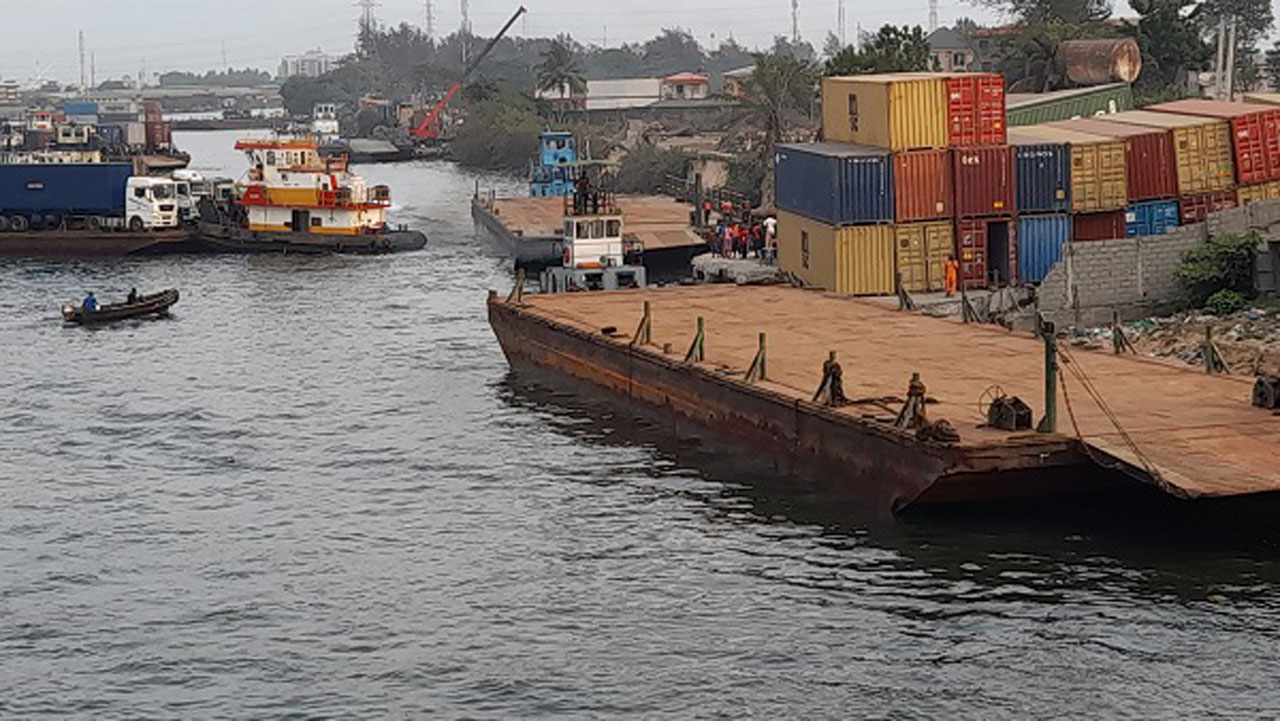
Some 82 indigenous companies, which are into barge operations are at the risk of shutting down, which could render over 26,000 people unemployed.
The 82 companies, with about 2,000 barges and tugboats operating on the nation’s waterways, employ at least 13 crew members on each barge, contributing significantly to job creation.
The barge industry has since 2019 moved about four million Twenty-foot Equivalent Units (TEU) of imports, exports, and other cargo entries, thereby easing road congestion and played an important role in cargo evacuation from the ports and transportation of export cargoes.
The Guardian gathered that the government’s monetary policies, such as the Nigerian Ports Authority’s (NPA) N50 million registration bond for license yearly in cash and high operational costs, imposed by port terminal operators, is forcing the companies to liquidate.
Beyond the N50 million registration fee, the barge operators must pay N80, 000 for movement clearance on each voyage, with an additional N170, 000 per unit charged by terminal operators and the main terminal charges.
The President of the Barge Operators Association of Nigeria (BOAN), Olubunmi Olumekun, emphasised that while barge operators understand the need for government revenue, the manner in which it is enforced stifles business growth. He noted that this inflexible policy is causing a ripple effect on employment and cargo movement efficiency.
The Director of Finance, BOAN, Bola Muse, called for a reform in the licensing process for barge operators, urging the NPA to adopt a model similar to that of the Nigeria Customs Service (NCS).
She stressed that the NPA’s imposition of a N50 million bank bond and other financial burdens are preventing many operators from registering their businesses.
Muse noted that the NCS once required a similar financial commitment, but after negotiations, they introduced an insurance bond instead, which cost N250, 000.
She said many foreigners have taken over the business activities because they have the financial means to do so, while many indigenous operators feel powerless, watching as these foreigners dominate the industry.
The Director of Compliance for BOAN, Sanni Saheed, emphasised that terminal operators’ charges are eroding profits and making it difficult for barge operators to stay afloat.
Saheed said meanwhile, the revenue generated by barge operators, who charge about N400, 000 from importers, fails to cover operational costs, leading many to opt for road transportation instead.
He said with all these expenses, it is challenging to cover asset renewals, staff payments, and other operational costs, especially since banks in this country offer little support.
The Director of Enforcement and Operations, BOAN, Nura Wagani, highlighted a troubling trend where terminal operators seem to favour imports over exports by imposing significantly higher tariffs on export activities.
He cited examples where terminals charge N190,000 per container for exports but only N50,000 for imports, a discrepancy he believes must be addressed to promote a more balanced and export-friendly approach.
However, these multiple financial impediments of overbearing charges from government agencies and terminal operators at the jetty and then to the warehouse, have made the cost of moving cargoes by barges more expensive than by road.
The BOAN president explained: ‘If you look at moving cargo by road now, moving from the port to Oshodi-Isolo, it’s about N200, 000. If N200, 000 is for the road movement, and somebody is calling for a barge which is still going to be subjected to another movement from the jetty to the warehouse, you will be paying nothing less than N500, 000 to N600, 000 on the barge.”
He said importers and their agents currently prefer going by road than to transport their cargo by barge, which is not good for the business.






